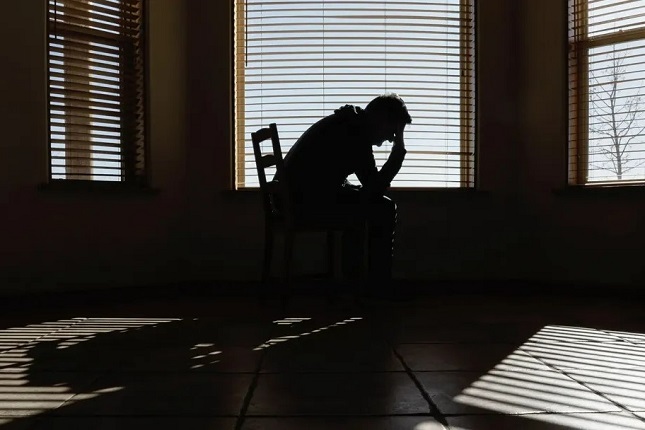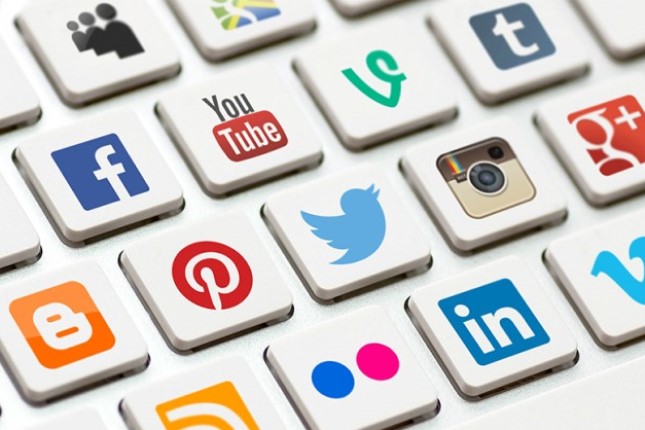While anxiety disorders are the most common mental illness in the US, depression isn't far behind. The most recent depression statistics include:
According to data from the 2017 National Survey on Drug Use and Health, 17.3 million adults in the United States—equaling 7.1 per cent of all adults in the country—have experienced a major depressive episode in the past year. Depression is especially prevalent among teens and adolescents. In the US, 3.1 million people between the ages of 12 and 17 have experienced at least one major depressive episode in the past year. From 2009 to 2021, the share of American high-school students who say they feel "persistent feelings of sadness or hopeless" rose from 26 per cent to 44 per cent, according to a recent CDC study.
This is the highest level of teenage sadness ever recorded. The United States is simply experiencing a severe teenage mental-health crisis. Suicide is the second leading cause of death among people ages 10-34.
But why are so many teens more depressed today than ever before?
In an article in the Portland Press Herald by Laura Bauer and Mara Rose Williams, experts say teens seem more hopeless than in previous years.
Tony Jurich, a professor of family studies and human services at Kansas State University, told the newspaper, "Teens think they are invincible, so when they feel psychological pain, they are more apt to feel overwhelmed by hopelessness and the belief that they have no control over their lives." Jurich calls these feelings of hopelessness and helplessness "the Molotov cocktail that triggers teen suicide."
A study led by Jean Twenge, a San Diego State University psychology professor, finds that five times as many high school and college students are dealing with anxiety and other mental health issues as the youth of the same age surveyed back during the era of the Great Depression. Twenge is also the author of Generation Me: Why Today's Young Americans Are More Confident, Assertive, Entitled - and More Miserable Than Ever Before.
Some experts believe that we have raised our teens to unrealistic expectations. Along with the messages from modern media sources that suggest that we should always feel good, they say many parents haven't taught their kids the coping skills they need to survive in chaotic times.
“In my opinion, it's all of the above and more," writes Therese J. Borchard, author of Beyond Blue. "Most experts would agree with me that there is more stress today than in previous generations. Stress triggers depression and mood disorders so that those predisposed to it by their creative wiring or genes are guaranteed some symptoms of depression at the confusing and difficult time of adolescence. I think modern lifestyles, lack of community and family support, less exercise, no casual and unstructured technology-free play, less sunshine and more computer factors into the equation."
Therese J. Borchard, author of Beyond Blue.
New psychological research reveals that lifestyle, values, and beliefs are particularly important for preventing depression and anxiety. The relationship between mental health and religion has been the subject of substantial research for the past 20 years. There is strong scientific support for the relationship between spiritual and mental health.
In a recent study, the relationship between religion and depression in adolescents was explicitly examined. According to the study, religion has significant effects on depression that are amplified for those who are already depressed. The study of processes reveals that religiosity acts as a stress-reduction mechanism in a manner that friendships and extracurricular activities do not, indicating that the social milieu of the school does not cause these effects.
Several other recent research studies found that religious/ spiritual involvement was related to less depression and faster recovery from depression in 272 of 444 studies (61%), less depression reported in the highest quality studies (67%). And that religious involvement is related to greater meaning and purpose in 42 of 45 studies (93%).
These startling research findings suggest that a larger-scale crisis of values, meaning, and purpose in life may be associated with depression. It begs the question: Is depression a healthy response to a dysfunctional society? Soul pleading for nourishment and direction toward a more moral way of living.
Man in contemporary psychology is seen as little more than a physical or inanimate object. It does not consider the immaterial nature of man. In Sigmund Freud's opinion, religion is an illusion and the unconscious mind's attempt to fulfil its desires. In essence, he believed that religion was neurotic. Freud's rejection of religion has dramatically impacted modern civilization. Many generations have been raised without any religious upbringing or understanding of a man's spiritual and immaterial character.
It is somewhat paradoxical that recent scientific studies in psychology have discovered the value of religion for people's mental health, given that psychology has long held the belief that religion is detrimental to mental health.
Are we at a place where we can debate if the historically high rates of those with depression and anxiety are a sign of a general spiritual crisis in a highly materialistic culture?
Modern psychology has made very little meaningful progress in treating the mentally sick because it lacks a true knowledge of the immaterial, spiritual aspect of human nature, according to Fr. Chad Ripperger in his book "Introduction to the Science of Mental Health."
If the most recent scientific study is correct and man requires spirituality to thrive in life, then the terrible mental crisis of our day is a crisis of values in Western civilization as a whole rather than the responsibility of people who suffer from it personally.
































